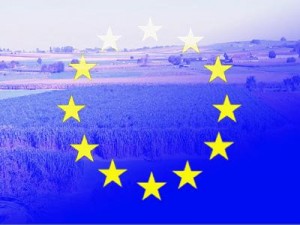 The European Commission has published this report on the development of the dairy market situation and the operation of the 2012 “Milk Package”. It describes the rather positive outlook for the dairy market, takes stock of the implementation of the provisions and possibilities of the “Milk Package” and outlines further considerations in view of the end of the quota system in 2015.
The European Commission has published this report on the development of the dairy market situation and the operation of the 2012 “Milk Package”. It describes the rather positive outlook for the dairy market, takes stock of the implementation of the provisions and possibilities of the “Milk Package” and outlines further considerations in view of the end of the quota system in 2015.
Learn lessons
The so-called “Milk Package”, adopted under co-decision in 2012, aims at strengthening the position of dairy producers in the dairy supply chain and preparing the sector for a more market-oriented and sustainable future, seeking in particular to learn lessons from the 2009 dairy market crisis. Member States have the option to make written contracts between milk producers and processors compulsory. Farmers have the possibility to negotiate contract terms including the price of raw milk collectively via producer organisations. Specific EU rules for inter-branch organisations allow actors in the dairy supply chain to dialogue and to carry out a number of activities, and Member States are allowed, under certain conditions, to apply rules to regulate the supply of PDO/PGI cheeses.
Contracts
The report confirms that contracts between farmers and processors have been made compulsory in 12 Member States (Bulgaria, Croatia, Cyprus, France, Hungary, Italy, Latvia, Lithuania, Portugal, Romania, Slovakia and Spain), while in some others (Belgium, United Kingdom), codes of good practice have been agreed between farmers and processors organisations. National provisions for recognition of Producer Organisations (POs) have resulted in 228 formally recognised POs in six Member States (Belgium, Czech Republic, France, Germany, Italy and Spain). In four of those Member States (Czech Republic, France, Germany and Spain), POs have conducted collective negotiations covering between 4 and 33% of total deliveries. Two Member States (France and Italy) have applied rules for regulating the supply of certain PDO/PGI cheeses.
Milk package
The Commission considers that it is too early to see significant effects of the Milk Package on the milk sector, especially in disadvantaged regions. The arrangements needed to actually apply the possibilities of the Milk Package, like the creation of POs and the organisation of collective negotiations, require time and a strong dynamic from farmers themselves. As a further measure for the post-quota market, the Commission recently launched the European Milk Market Observatory (MMO), aimed at improved market transparency and analysis for economic operators when they take their business decisions. The MMO will help the Commission to monitor market developments, to deploy “safety net provisions” in a proactive manner and to react to exceptional circumstances.
World
Despite a largely positive outlook for world dairy markets, with significant growth opportunities in the coming years, the report reflects on doubts that have been voiced about the capacity of the EU regulatory framework to deal with extreme market volatility or with a crisis situation after the end of the quota regime, especially with a view to ensuring the balanced development of milk production across the European Union and avoiding extreme concentration in the most productive areas. The Report of 2014 confirms that the Commission will pursue the debate to address these concerns and will explore the need and scope for additional tools.
Webpage on Milk Package: www.ec.europa.eu/agriculture/milk

